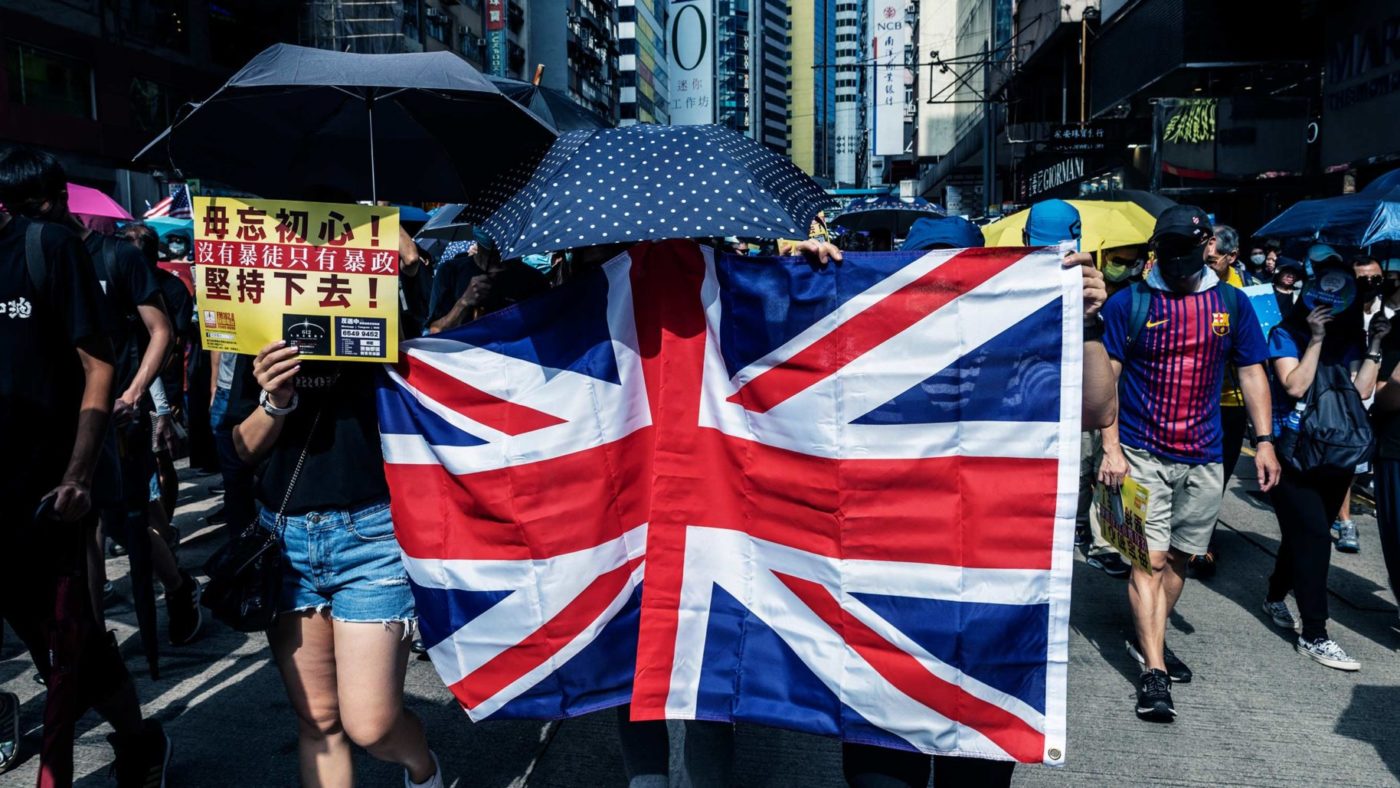Few things better capture the haphazard manner in which the United Kingdom disentangled herself from Empire than the fact that there are no fewer than six types of British nationality.
One of these – that of British National (Overseas) – has been thrust into the spotlight in recent days. As the Chinese Government has tightened its grip on Hong Kong, our own has had to decide what to do with the hundreds of thousands of Hong Kongers who hold BN(O) passports.
There is a clear parallel with 1972, when in Lord Popat’s words, Edward Heath decided that “Britain had a legal and moral responsibility to take in those with British passports” and admitted tens of thousands of Ugandan Asian refugees.
Boris Johnson’s Government has followed in Heath’s footsteps (one of the few imaginable instances of this being a good thing). Not only are ministers extending the rights of those who already hold BN(O) passports, but they are opening a path for the almost three million Hong Kongers who are eligible for one.
They should go further still, not least for the sake of the younger generation born after the handover, many of whom are facing down the police under the Union Flag. The Adam Smith Institute has called for every Hong Konger to be given the right to settle in Britain.
But the Prime Minister must think bigger. An expansive and generous settlement for the people of Hong Kong should be a spur for the Government to confront, once and for all, Britain’s obligations to those who have served it or been subject to it.
The Hong Kongers are by no means the only ‘imperial minority’. I have already mentioned the East African Asians, hundreds of thousands of whom were driven out of Uganda and Kenya after being settled there under the British East Africa Protectorate. Then there are the so-called ‘Queen’s Chinese’, inhabitants of Malaysia who upon Malayan independence, in the words of Sir Alec Douglas-Home, “attached considerable importance to maintaining their connection with the Crown as citizens of the United Kingdom and Colonies”.
Note that Sir Alec, speaking in 1972, was explicitly reassuring MPs that Britain had no obligation to admit the Queen’s Chinese. Today many of their decedents, now ‘British Overseas Citizens’, are effectively stateless and risk being deported from Britian.
Readers may also remember the high profile campaign that had to be waged to win Gurkha veterans, who had served in our Armed Forces, the right to settle in the country they had fought for. Or the similar campaign being waged right now by Commonwealth-born veterans who are having to fight to live here whilst being billed tens of thousands for NHS care. Or even New Labour’s refusal to grant asylum to Iraqi translators who had assisted British forces.
The British Empire was by no means the only one to employ minority groups who have later been victimised upon independence. The Dutch have the Moluccans, who served in the Royal Netherlands East Indies Army against the Indonesian nationalists and sought their own state. Charles de Gaulle distinguished himself with his disgraceful betrayal of the hundreds of thousands of harkis, auxiliaries who fought for France against the Algerian separatists.
And if we count America as an empire then we have the Hmong, recruited in large numbers to fight communism in Indochina before being abandoned in the 1970s to be persecuted by the Laotian government. Some of them are fighting to this day.
How many of these had you heard of? What tends to unite these disparate groups, other than the shabby treatment they typically received from the powers they served, is their relative invisibility. Loyalists, especially those who were subject to persecution after independence, vex both the Left and much of the Establishment Right, muddying as they do both lazy orthodoxies about virtuous national liberation movements versus wicked colonisers and back-slapping narratives of tidy imperial retreat.
This means that whilst Britain can rise magnificently to the occasion when their plights are thrust into the spotlight, the state can too often default to a posture of bureaucratic obstruction and hostility.
It shouldn’t take another Idi Amin to make us recognise the UK’s “legal and moral responsibility” to those the receding tide of Empire had left high and dry. Health’s decision to admit the East African Asians was a great moment, one which saved tens of thousands of lives and has contributed a huge amount to our country. But he failed to translate it into anything like a comprehensive approach to fulfilling Britain’s debts of imperial honour.
Johnson should not make the same mistake. He should instead seize this opportunity to establish a new ‘Hong Kong doctrine’, harmonising Britain’s approach to her overseas subjects.
Michael Gove is already overseeing a constitutional review. It would be a simple matter to expand it to include an overhaul of the half-dozen legacy statuses, with a firm steer towards creating pathways towards full citizenship. Likewise, the Home Office and Ministry of Defence should be ordered to devise a streamlined pathway to residency for Commonwealth-born veterans.
The best traditions of liberalism and conservatism combine in a generous approach to those who, though separated from these islands by great distances, nonetheless count themselves as part of the British nation or choose to serve the British state. Resolving their status in favour of citizenship would be a legacy to be proud of.
Click here to subscribe to our daily briefing – the best pieces from CapX and across the web.
CapX depends on the generosity of its readers. If you value what we do, please consider making a donation.


